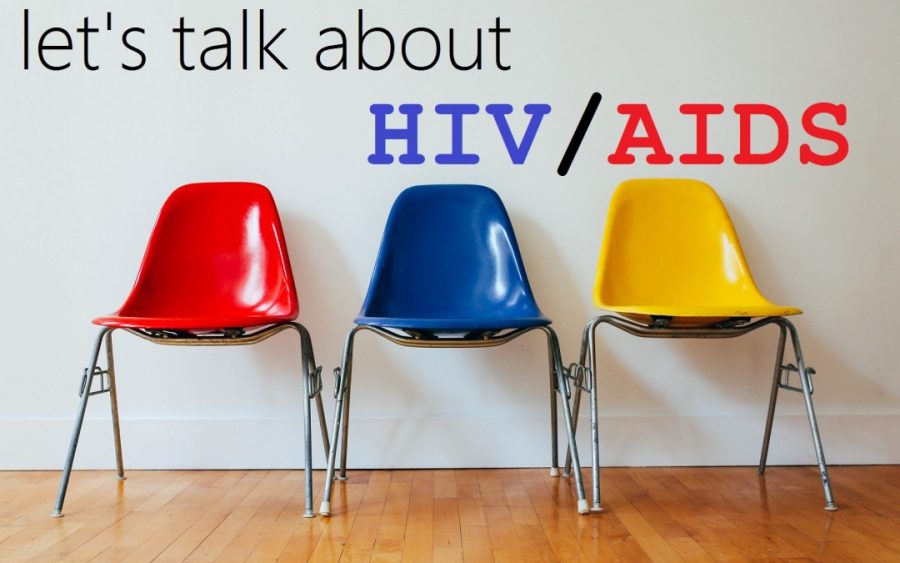Mercy Hosts HIV Screening and Info Session
Young adults are the highest risk to get infected of HIV, however, these young adults are the same ones that don’t like to be informed about HIV and STDS, say experts.
Mercy College together with the Open-Door medical center, brough students the opportunity to be tested for HIV and free of cost.
According to the Washington Post, one in every 500 college students becomes infected with HIV. Unfortunately, some parents do not encourage kids to have precautions when they start having an active sexual life.
Being this the second year for Open Doors joining the Health and Wellness Program of Mercy College, they feel they are making progress on letting students know about the importance of being informed. Young adults, teenagers and everyone needs to understand that it is not bad to have the virus, but to have it and not being able to control it or prevent the spread of it.
Jacquelien Ross is a graduate student from nursing school. This was her first time helping the health department with this campaign. She expressed that many families are under the taboo of not talking about HIV. “I have a couple of family members that live with HIV virus and they are perfectly fine,” says Ross.
She has family members that are living with the virus daily and that they are healthier than anybody else. They must take their medications daily and keep track with the doctor. However, the HIV virus when is controlled it becomes “harmless”. Harmless because the infected person is a low risk of transmission even if a condom is not worn at the sexual act.
“This is my first year helping Open Doors and Mercy College. I brought some candies and snacks to attract them (students) and explain to them how important and easy is to be tested for HIV,” says Ross.
The test takes less than five minutes, it is confidential and depending on the results they help you with anything you need. It takes one tiny pinch on one of your fingers to get and accurate result. If you have been at risk, they will explain to you how to get medication to prevent it or in many cases flush away the virus from your system. This medication is taken as a once-daily oral pill and works by blocking the entry of HIV into the body’s cells.
If you are positive, they will help you find the right treatment. If you don’t have health insurance, there is nothing to worry since there are many alternatives to cover all these expenses. The goal is to alert and prevent the spread.
HIV has a complicated history. In 1959, it was the first time HIV-1 was detected in a human. In 1983, scientists found a type of chimpanzee infected in West Africa, and they associated that as the reason on how humans became infected with the virus.
Years ago, the most effective test was from a laboratory. Blood tests used to take three to four days or sometimes a week. However, since the technology is advancing, everything else is too. Nowadays, it is much easier, patients will get a tiny pinch in their finger, wait for three to five minutes and get the same results as years ago.
“The new method is 99.1 percent accurate compared to the lab test that is 99.9 percent accurate,” says John Rodriguez. He is a PrEP Navigator at Open Door.
The PrEP (Pre-exposure prophylaxis) medication is when people at risk for HIV take daily medicine to lower their chances of getting HIV.
“With this campaign we are trying to inform and let students know the importance of knowledge when it comes to important topics such is HIV.”
He says that new generations are becoming easy targets to become infected. New generations are exposed to sexual relationships as early as middle school, parents need to inform kids how important is a condom or talk about this kind of illnesses.
“Hispanics and black African Americans are the races with more infected people according to statistics,” says Rodriguez.
These ethnic races are scared or feel ashamed to talk to their kids about sex and contraceptives, he says. For years the disease has had a negative connotation. Decades ago, people used to believe that HIV was common only on homosexual or transsexual community. It was not true, as all could conceive it by sharing needles or from blood transfusions. For these reasons older generations, parents at this present time, keep thinking the worst about HIV. Nowadays, anyone can be infected with HIV and don’t know about it. However, if the correct information gets shared with young kids, they are less likely become infected and learn the true and the correct treatments on time, he says.
While Ross and Rodriguez were waiting for students to come and be tested, some students seem carefree about the topic. Some asked and giggled and others were questioning how private all the process was.
“Usually women are the ones that take advantage of this kind of events. Men usually just walk through to get some free condoms, but they are not that interested in the information as women,” says Ross.
The Health and Wellness Program from Mercy college together with Open Door Medical Center, think that promoting and sharing is very important. Even though not all the students take the brave step on being tested, at least making some students acknowledge about HIV is better than nothing.
“We will keep coming and inform as much as possible,” says Ross. “There is no doubt that this year students are considering more on coming and ask to our table.”

Adriana Saad is from Ecuador. Her grandmother brought her over when she was 15 years-old for a better future. She jokes that her plan did not go as she...








